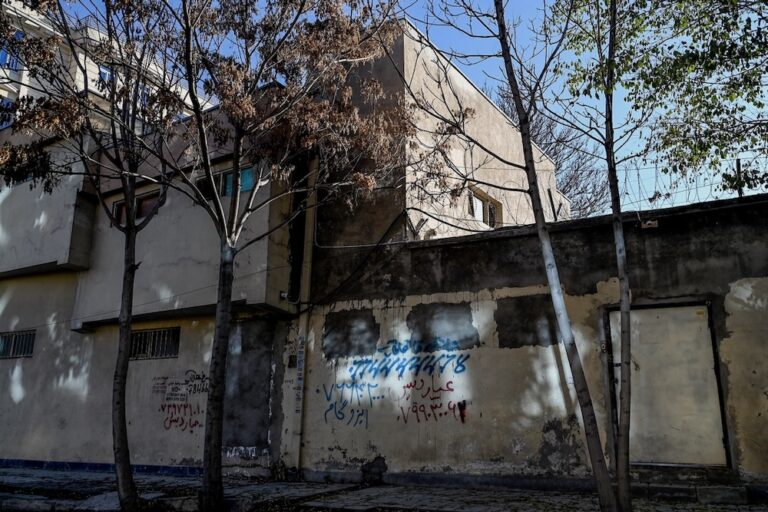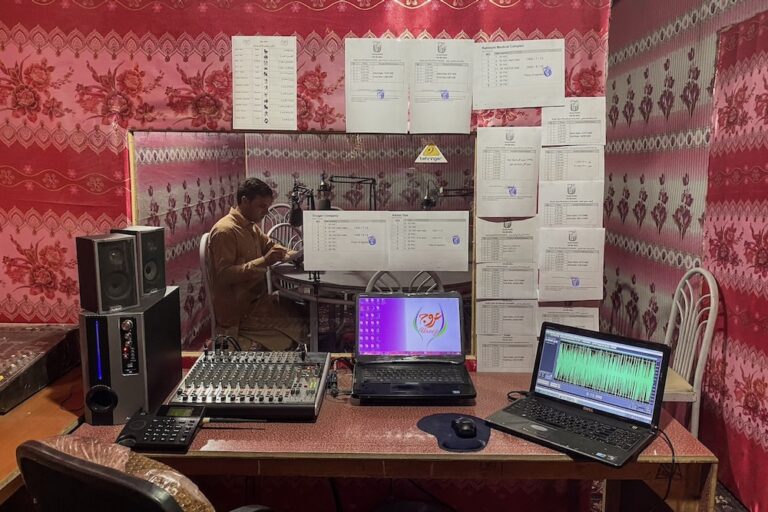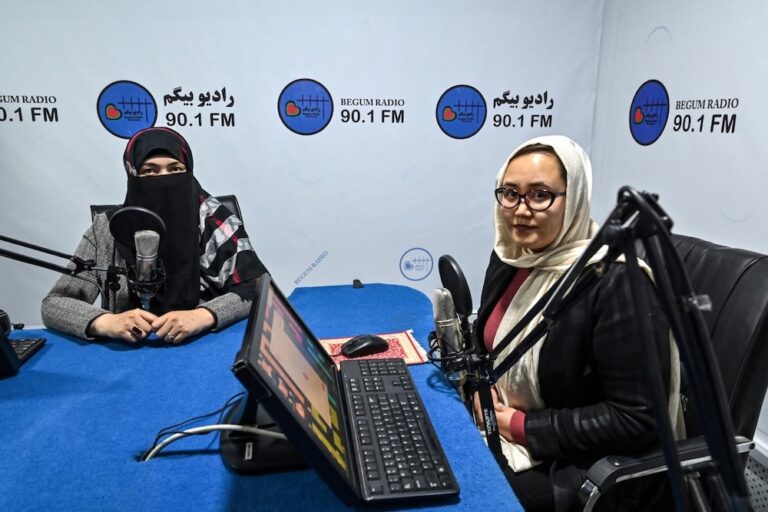(CPJ/IFEX) – On 29 September 1997, European Commissioner for Humanitarian Affairs Emma Bonino, eighteen other European Union (EU) workers and journalists, including Christiane Amanpour of the Cable News Network (CNN), and a CNN film crew were detained for three-and-a-half hours by Taliban police in Kabul. According to an Associated Press (AP) report citing sources in […]
(CPJ/IFEX) – On 29 September 1997, European Commissioner for
Humanitarian Affairs Emma Bonino, eighteen other European Union
(EU) workers and journalists, including Christiane Amanpour of
the Cable News Network (CNN), and a CNN film crew were detained
for three-and-a-half hours by Taliban police in Kabul. According
to an Associated Press (AP) report citing sources in Kabul, four
people were filming and photographing women at a hospital when a
doctor telephoned the Taliban authorities. Armed Taliban guards
arrived at the women’s hospital to protest. One aid worker was
assaulted by the police during the arrest.
Taliban regulations prohibit photographing humans, and taking
pictures of women is considered particularly offensive.
While EU Commission spokesman Klaus van der Pas said that Bonino
“received apologies” for the incident from the Afghan foreign
affairs department, Foreign Ministry officials have said that
foreign correspondents working in Afghanistan have the right to
report current events but should avoid any analysis, comments,
and stories which refer to ethnic, religious, and linguistic
differences in Afghanistan. According to a report from Islamabad,
the Taliban has required journalists visiting the capital to hire
Taliban-approved translators and drivers and to stay in
officially sanctioned hotels.
On 20 August, Abdurrahman Hotaqi, the Taliban’s deputy minister
of information, warned the resident foreign press in Afghanistan
that “biased and false analysis” and eyewitness reports will not
be tolerated by Taliban authorities. He told reporters, “We
expect the foreign journalists to obey the principles of the
Islamic state of Afghanistan and take into account the
sensitiveness of the situation. We call upon them not to
disseminate slanders.”
Recommended Action
Send appeals to authorities:
journalists in practising their profession freely and safely
on foreign journalists are intended to discourage investigative
journalism and that such restrictions could hinder their ability
to cover events accurately
Amanpour, and their colleagues signals the deterioration of
conditions for journalists working in Afghanistan
journalists are able to work without fear of reprisal
Appeals To
A. Hakeem Mujahid
Permanent Representative/Designate of the Afghan Mission to the
United Nations
Taliban Islamic Movement of Afghanistan
55-16 Main Street Suite 1-D
Flushing, NY 11355
Please copy appeals to the source if possible.


